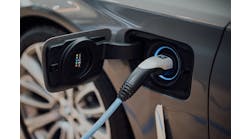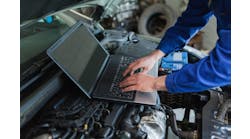In August 2012, the Obama administration finalized a revision to the Corporate Average Fuel Economy (CAFE) standards through the National Highway Traffic Safety Administration (NHTSA) that aimed to provide a pathway to increase fuel economy to the equivalent of 54.5 mpg for all cars and light-duty trucks by model year 2025.
Advanced in-vehicle technology. New, lightweight structural materials. Modified powertrains. Vehicles are changing drastically, says Joshua Linn, a senior fellow at Resources for the Future. The benchmark will weigh heavily on automakers, and could have a large impact for the auto care industry. “There’s a lot of build up to this midterm review,” Linn says, “and there’s potentially a lot on the line.”
What Shops Should Watch
Many may have expected hybrids and electric powertrains filtering into mainstream models, but Daniel Sperling, founding director of the Institute of Transportation Studies, says that this is not the only change to expect. He says that automakers have simply better utilized more traditional (and consumer-friendly) concepts. Ford made headlines with its aluminum-bodied F-150 in 2015, shedding more than 700 pounds from the highest-selling vehicle in the U.S. Sperling, a member of the California Air Resources Board and chair of the Transportation Research Board, says the industry has already seen a continued push for more lightweight materials, but there will also be a great focus on electronics.
“Features like adaptive cruise control and lane-keeping systems,” he offers as examples. “Information capabilities will present new technology. Different types of equipment, materials and control systems are all to be expected.”
“It’s great for the customer, but it will present a challenge for shops.”
K.G. Duleep, president of H-D systems, a consulting firm for the global automotive industry, agrees that in the next few years shops will begin seeing a different type of vehicle. He foresees smaller, turbocharged engines becoming more the norm and that transmissions will have more gears.
“Eight-, nine- and 10-speed automatics will become mainstream in the next few years,” he says.
He also added that he thinks in the next year or two, luxury cars will begin to operate very lean and that the more budget-conscious automakers will follow. The increase of plug-in and hybrid vehicles is another outcome of CAFE that shops should expect.
“Vehicles are all headed toward electric propulsion in addition to or in place of combustion engines,” Sperling says.
Another trend that both automakers and shops will have to monitor is the price of gas, as that will affect how vehicles are made, Linn says. Traditionally, when gas prices are low, SUV sales go up. Because of the CAFE standards, automakers now need to pay attention to the size of vehicles and how it will impact the fuel economy. Right now, automakers are keeping vehicles at around the same size, but if the price of gas fluctuates drastically in either direction, adaptations will be made.
How to Prepare
“I think a lot of it is principally going to be gaining information on how the new systems work because they will differ from how current systems are running.
Troubleshooting and understanding how they work is going to be very important for shops,” says Duleep, when asked about what shops should do now to prepare for vehicles coming down the line.
Keith Heilveil, owner of Village Auto Repair & Maintenance, already has a jump start on preparations because of the location of his shop in Lansdale, Pa., which is one of the states that require periodic emission testing. He advises that shops continually monitor the requirements, as those could change in the next few years.
Gasoline direct injection (GDI) is another issue that Heilveil thinks shops should be aware of. He has taken full advantage of the GDI training that the Automotive Service Association (ASA), which Heilveil is a member of, provides. Bob Wills, owner of Wills Auto Service and ASA’s mechanical division director, agrees that GDI is an issue shops need to watch.
“GDI fuel systems and variable valve timing problems come into play when a vehicle gets better fuel mileage,” he says. “As shop owners, we need to educate ourselves over and over again on the importance of fuel systems cleaning.”
Heilveil advises shops to wait on making any big equipment purchases based off CAFE, which he says is too far out to be able to predict what equipment might be needed.
Heilveil, Wills and Duleep agree that continued education and training are the best steps for shops to take in the present to prepare for the vehicles that will be coming in the near future.
Will the Industry be Ready?
In order to meet the 54.5 mpg standard by 2025, fuel efficiency will need to reach a level that’s nearly double what it is today, Sperling points out. It may seem drastic, but he sees the industry as being right on track to meet that goal.
“They’re making incredible improvements at a relatively small cost,” says Sperling. “It’s being accomplished easier and better than anyone had attributed. Engineers are doing a nice job.”
Heilveil also seems optimistic with the position that mechanical shops are in.
“I think on a national level, as with any technology that comes out, there’s a curve involved in learning it,” he says. “I don’t think every shop will be 100 percent ready right away. There will be the dribble effect, with the first cars coming off of warranty, and that could be painful. But through associations and the sharing of information, the industry is pretty quick to adapt and get up to speed.”



